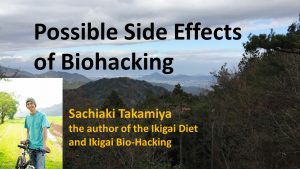Shugendo: a Rebellious Spiritual Practice in Japanese History
The newsletter
The Ikigai Diet and Bio-Hacking
I have finished reading the book about Shugendo that I mentioned before in the post below.
https://ikigaidiet.com/ever-wondered-how-ninjas-would-biohack/
It is called Yami no Shugendo, which means dark Shugendo or Shugendo: dark spirituality. The title is captivating but it is misleading a little. It is not so much about darkness, it is more like an outlaw, and a rebellious religion in Japan.
As I stated before, the main religions in Japan are Shintoism and Buddhism. It is especially Shintoism since it is related to the emperor and is considered to be the original religion. Buddhism came from India through China.
However, according to the book, Shintoism was established by the imperial family to give authority to the emperor, and spiritual practices among the citizens in ancient times have been taken over by Shugendo. So, Shugendo is the authentic Japanese religion.
Because of this authenticity and popularity among the citizens, it has been a threat to the establishment and has been outcasted and regarded as heresy.
That was another reason it has stayed in the mountains.
Yet, the establishment has not been able to eliminate the practice of Shugendo completely and Shugendo has remained influential in Japanese spirituality. Shugendo’s mountains are everywhere and villagers have been in contact with Shugendo practitioners since they could serve as great healers and magicians.
Even the establishment has had to rely on their power such as espionage services by Ninjas and sorcerous services by Yamabushis.
Shugendo has always been on the side of the weak and venerable, and there have been many occasions where Shugendo supported revolutions.
That is interesting. I didn’t know any of this. In fact, most Japanese people don’t know much about Shugendo. Our image of Shugendo is a bunch of eccentric men living in the mountains blowing conch horns. Shugendo hasn’t been hidden, and we all know these people have existed but they have always been a mystery to us. They are not Shinto priests, yet they aren’t Buddhist monks either. Then, who are they? Not many of us can answer it.
During the process of creating Ikigai Bio-Hacking, I was drawn to Shugendo by coincidence. I spent a lot of time in the forests and mountains, and most of the mountains in the Kinki Region had some connection with Shugendo. But now, I wonder the whole thing could have been intended. In many ways, Ikigai Bio-Hacking is presenting a direction that is different from the mainstream narrative or the plan to establish a centralized technology-oriented health care system.
The newsletter

